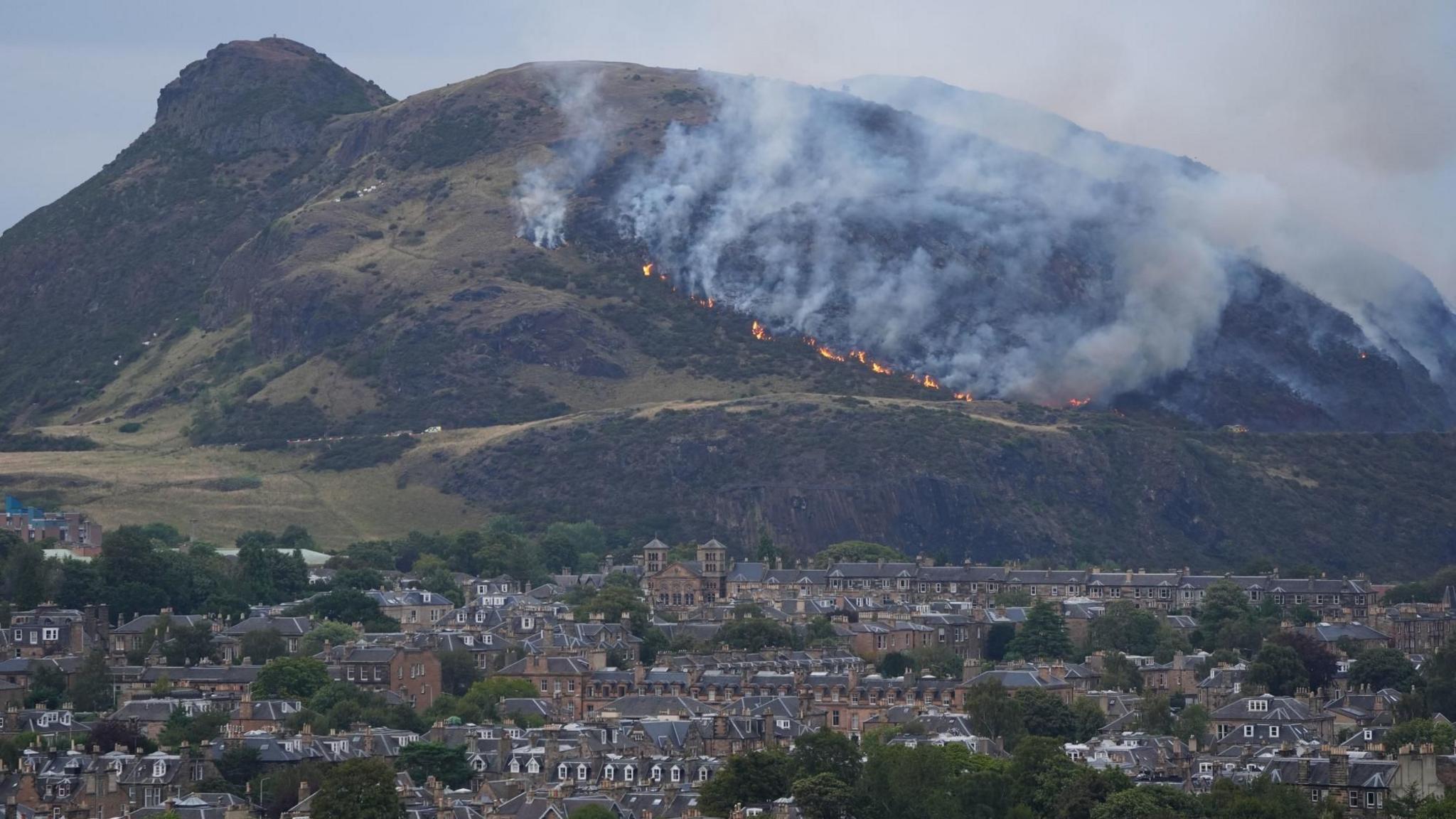Scotland at 'very high' wildfire risk from Wednesday

A fire thought to be caused by human activity broke out on Arthur's Seat in Edinburgh on Sunday
- Published
A wildfire warning covering most of Scotland has been issued for the 10th time this year following a fire on Arthur's Seat in Edinburgh.
The Scottish Fire and Rescue Service (SFRS) said naked flames should not be used outdoors during a period of "very high" risk of wildfire which comes into force for seven days on Wednesday.
Crews were called to tackle a large gorse blaze on the Edinburgh landmark on Sunday, which the fire service believe was caused by human activity.
It follows several months of wildfires in areas across the country which have seriously damaged parts of the landscape.
Arthur's Seat blaze likely caused by human activity - fire service
- Published11 August
Highland wildfires were 'biggest in Scotland's history'
- Published17 July
The alert will be active in eastern Scotland between Wednesday and Friday and will extend to the east and west of the country between 16 and 17 August.
On Monday and Tuesday next week, the warning covers most of Scotland, including the east, west, central belt and southern uplands.
The Met Office has also issued yellow thunderstorm warnings , externalfor most of Scotland, except the south-west, for Wednesday and the whole of Scotland for Thursday this week.
It said spray and sudden flooding could lead to difficult driving conditions and some road closures.
Human behaviour
Last month, Scottish Land and Estates said wildfires which burned in Carrbridge and Dava in the Highlands were the largest ever seen in Scotland.
Others have been reported in Perthshire, Arran, Thurso, Cumbernauld and on the Pentland Hills in Edinburgh among a number of others since April.
Rising temperatures and dry conditions across the country over the next week have increased the risk of fires breaking out.
SFRS group commander Niall MacLennan said "the vast majority" of wildfires were started by humans.
"During periods when the risk of wildfires is high, we want people to avoid using portable barbecues, discarding cigarettes on the ground or lighting campfires in or near areas of vegetation, as these all pose a significant threat," he said.
"We know the vast majority of wildfires are started by human behaviour, so acting responsibly can lower the chance of a fire starting in the first place."